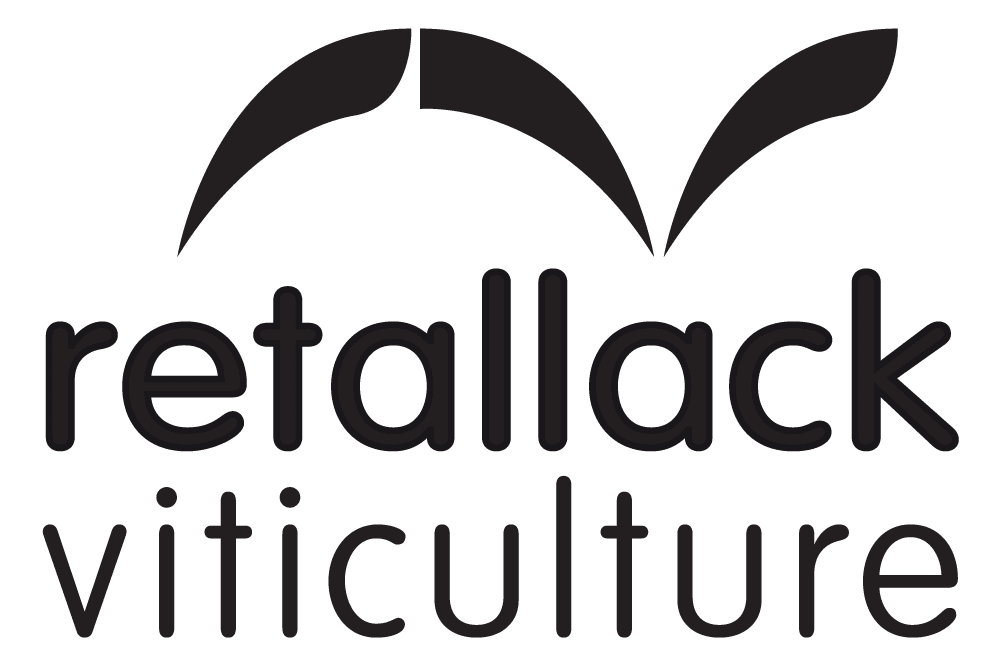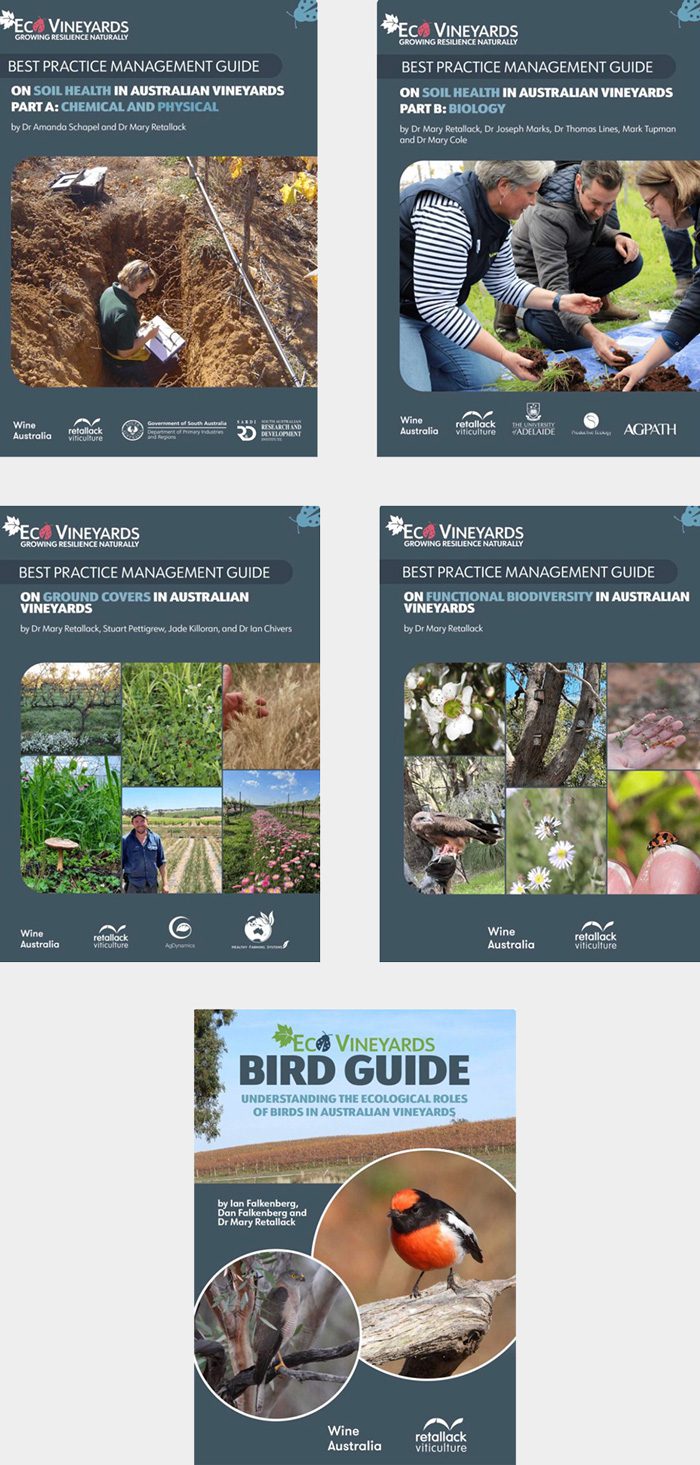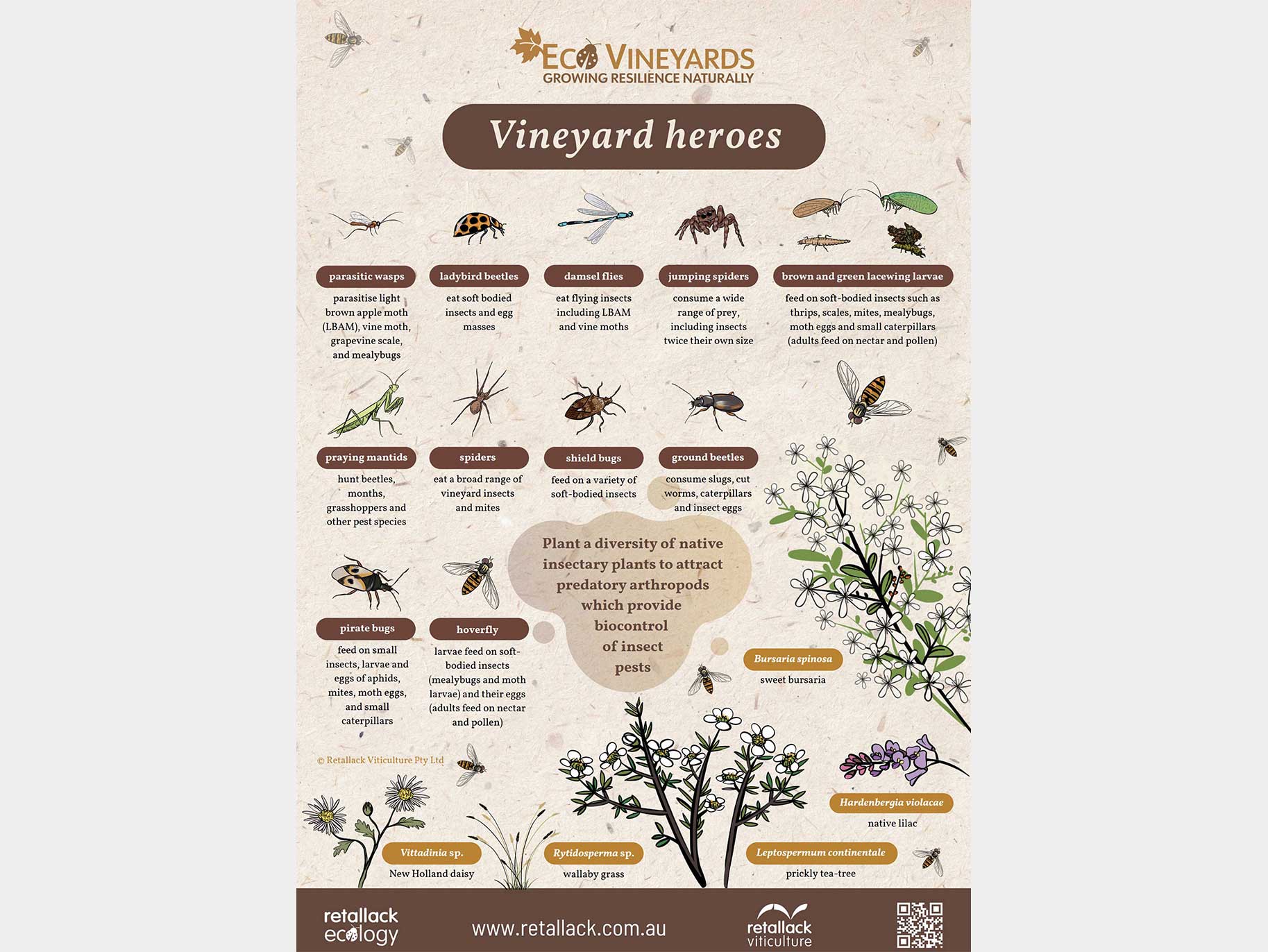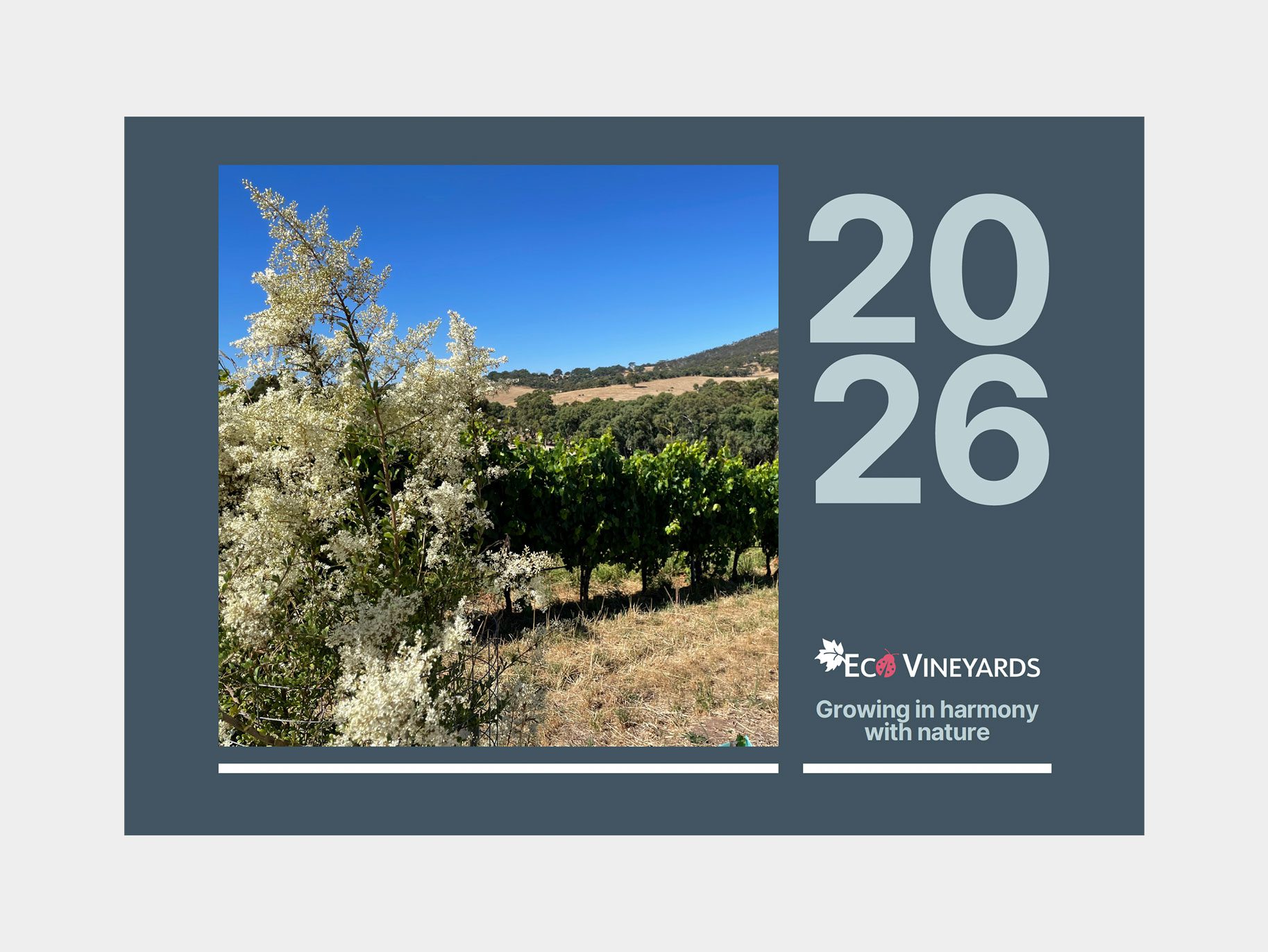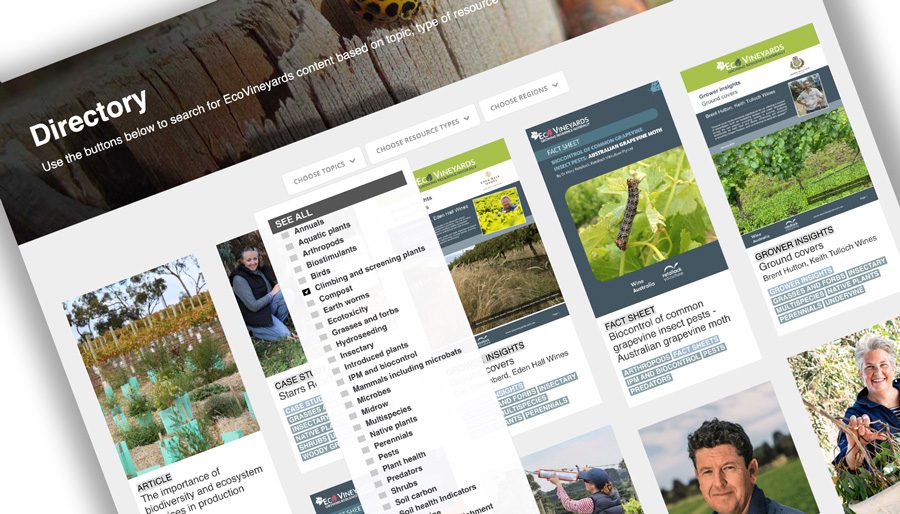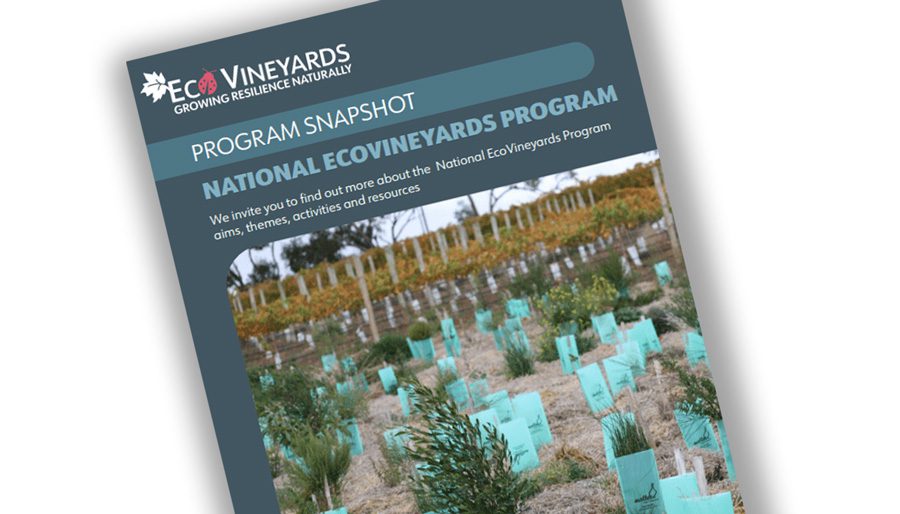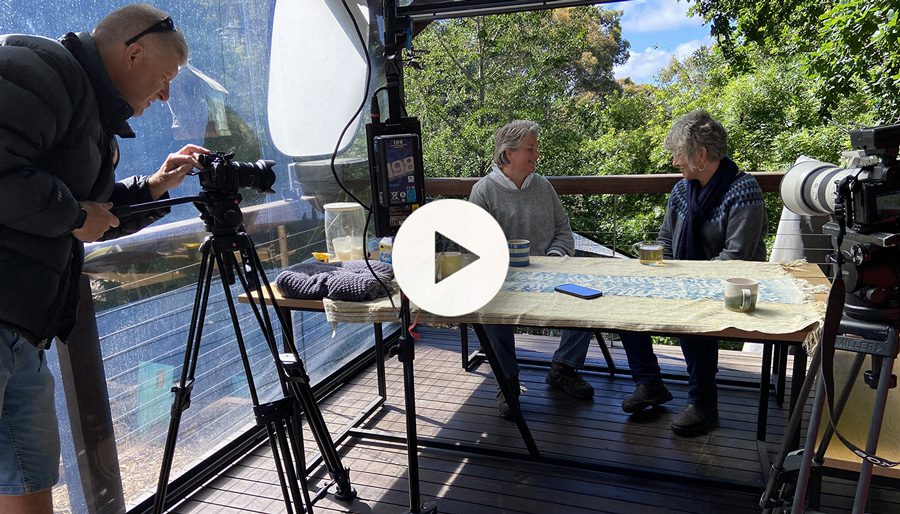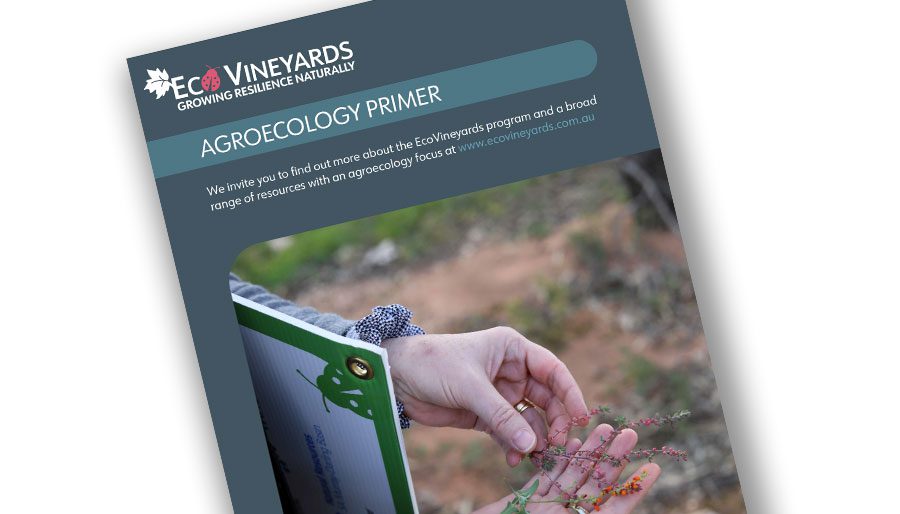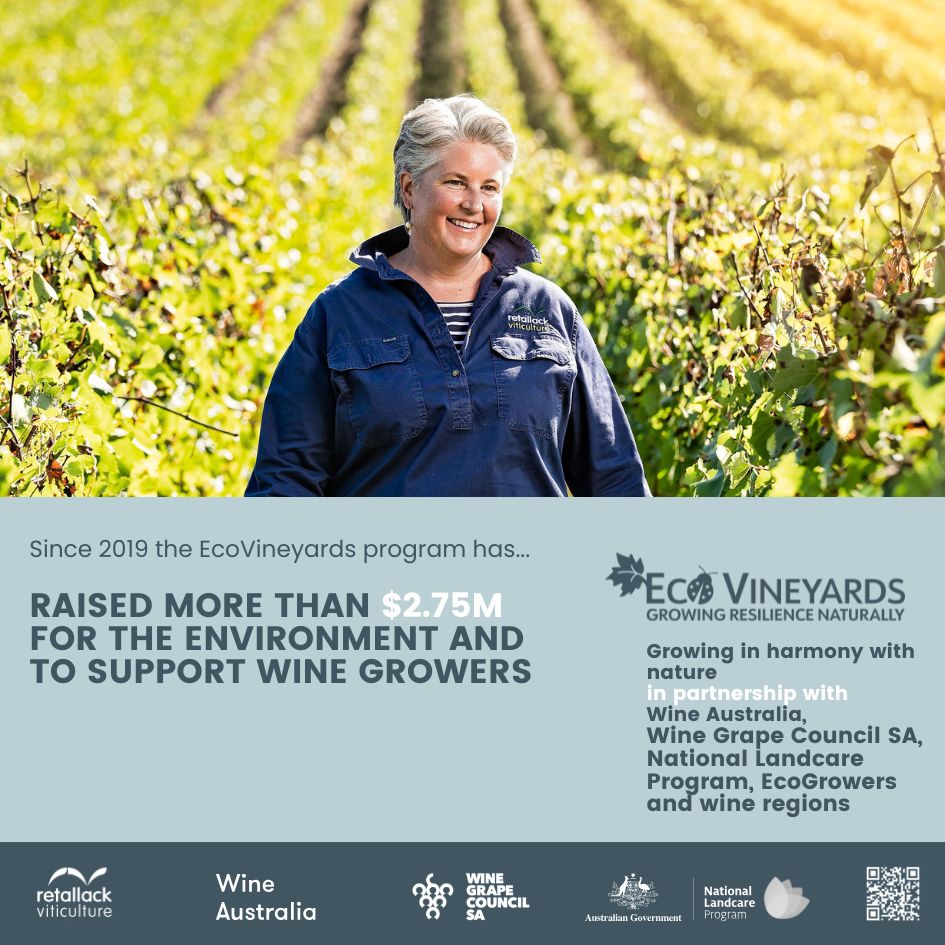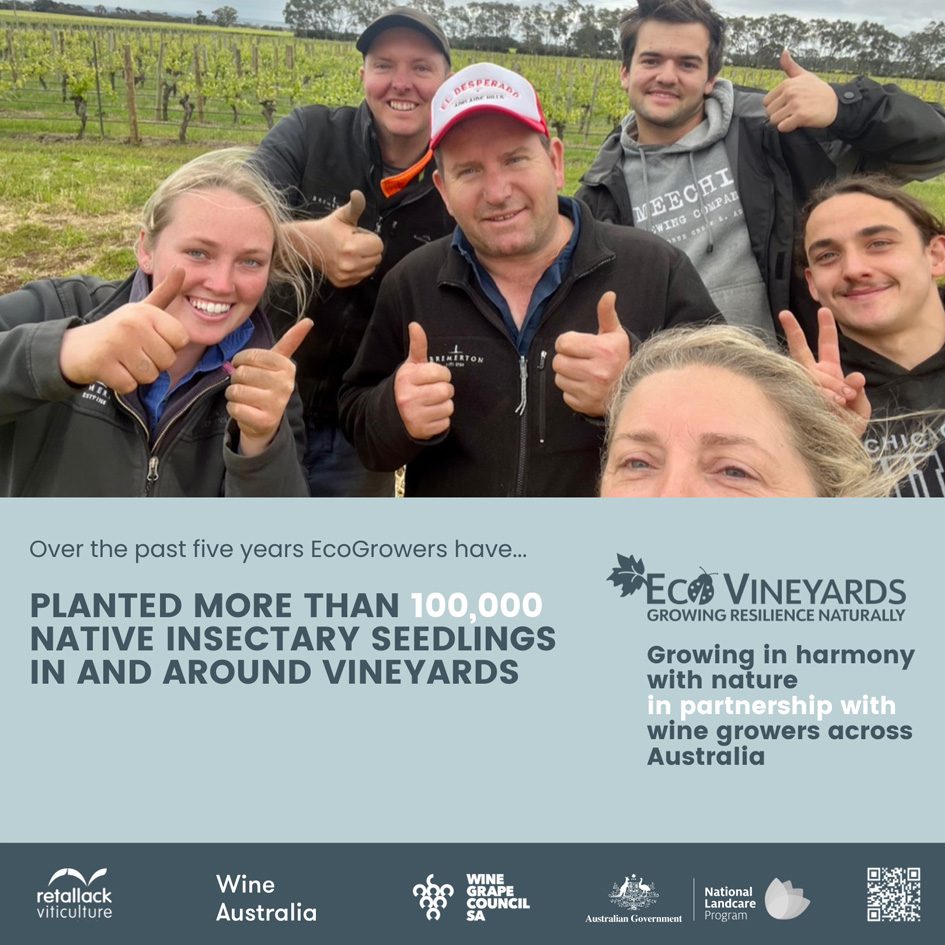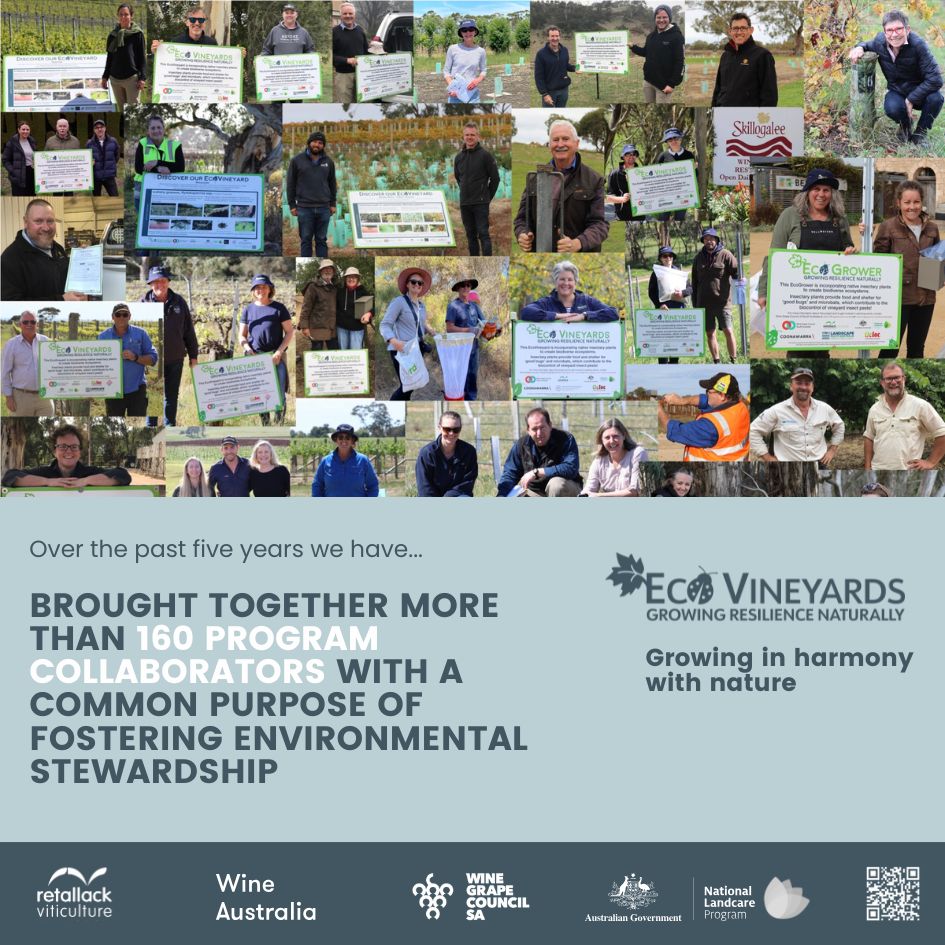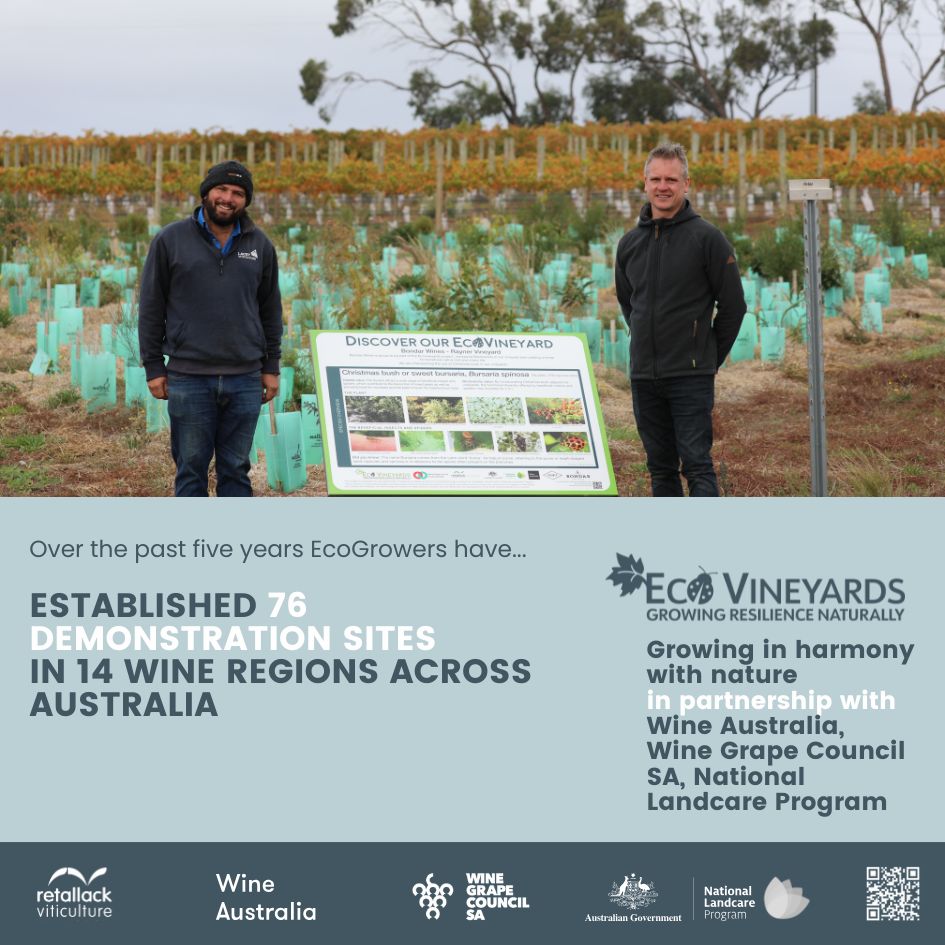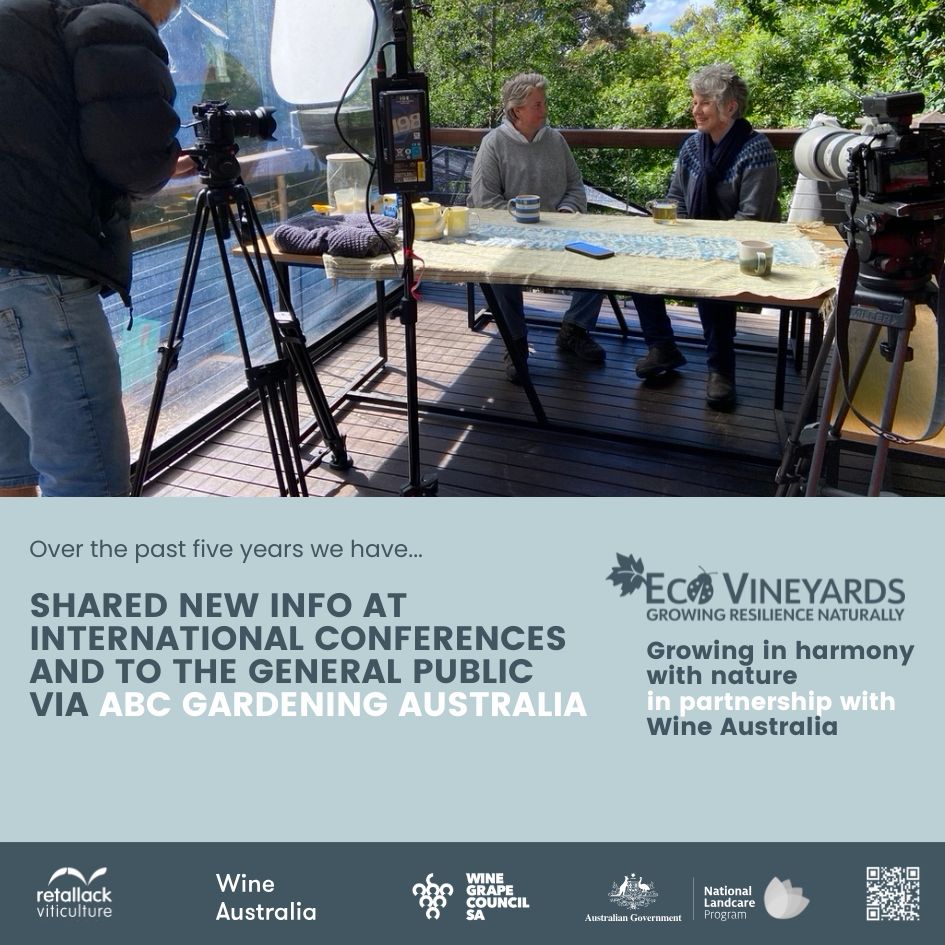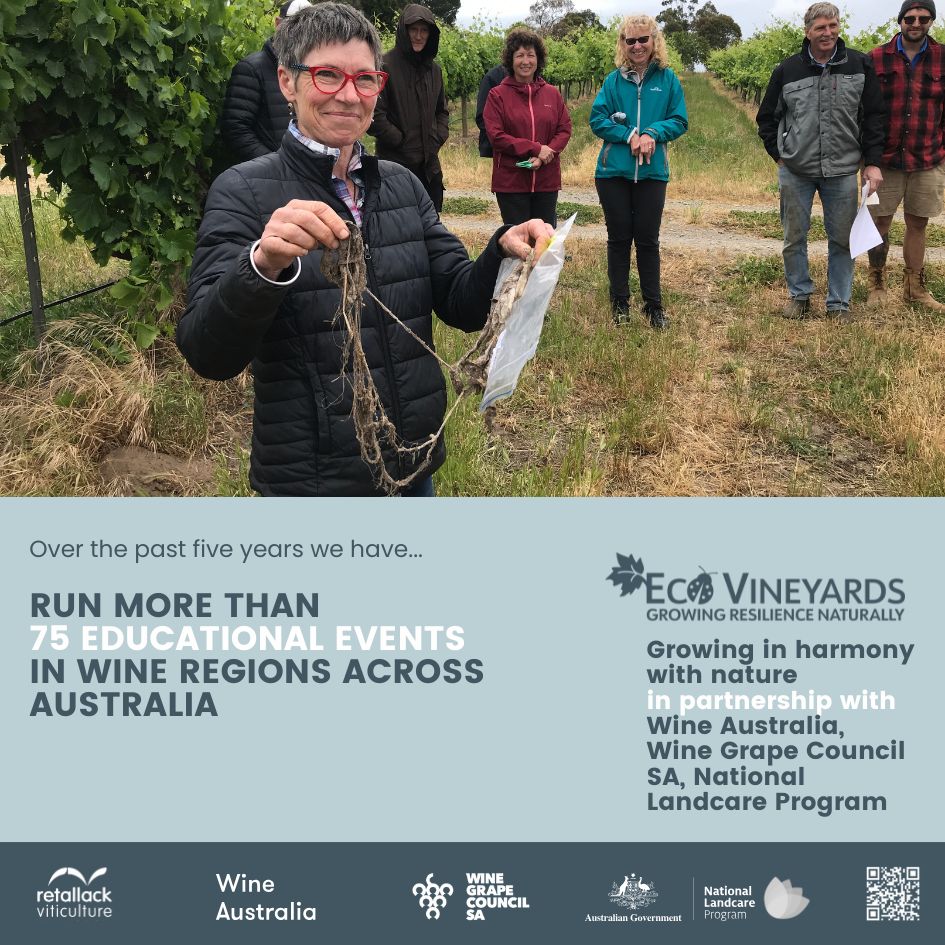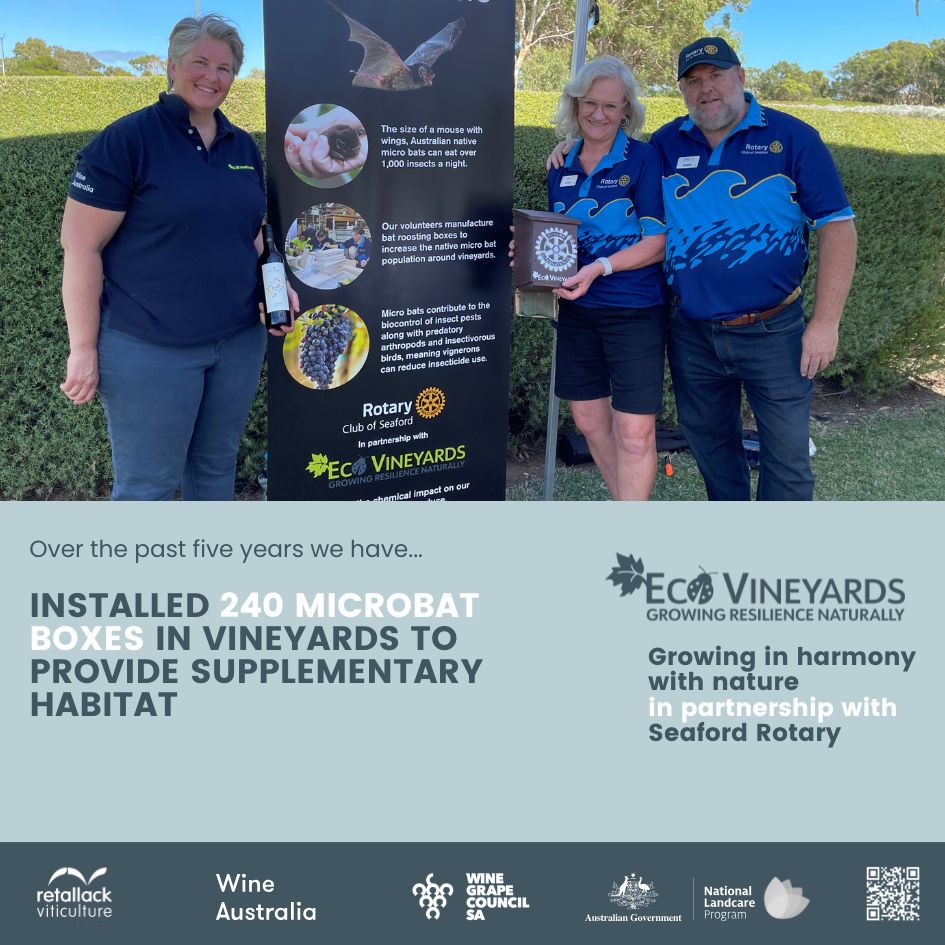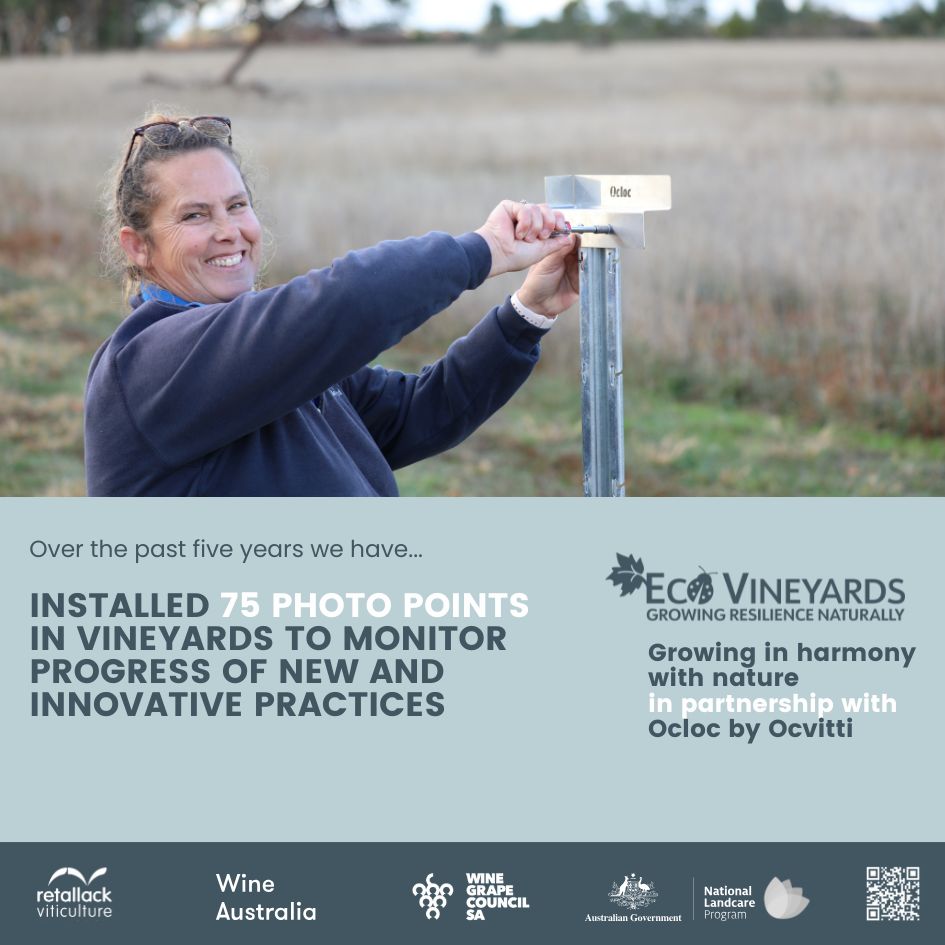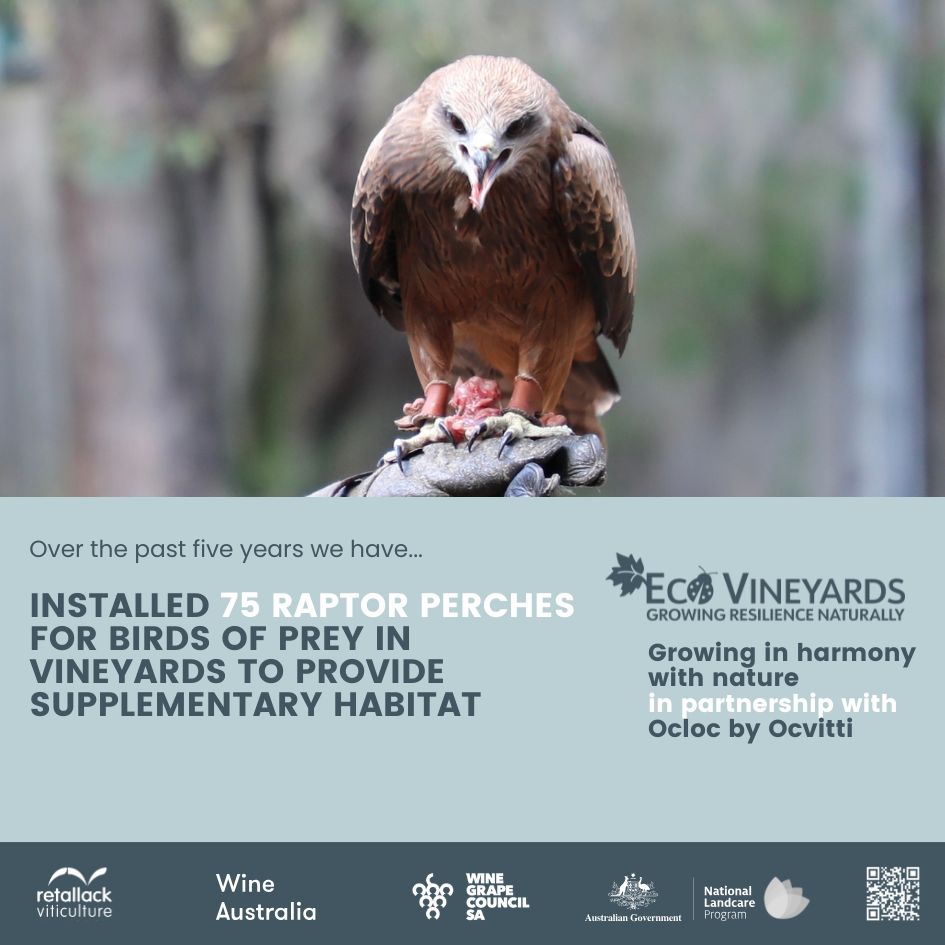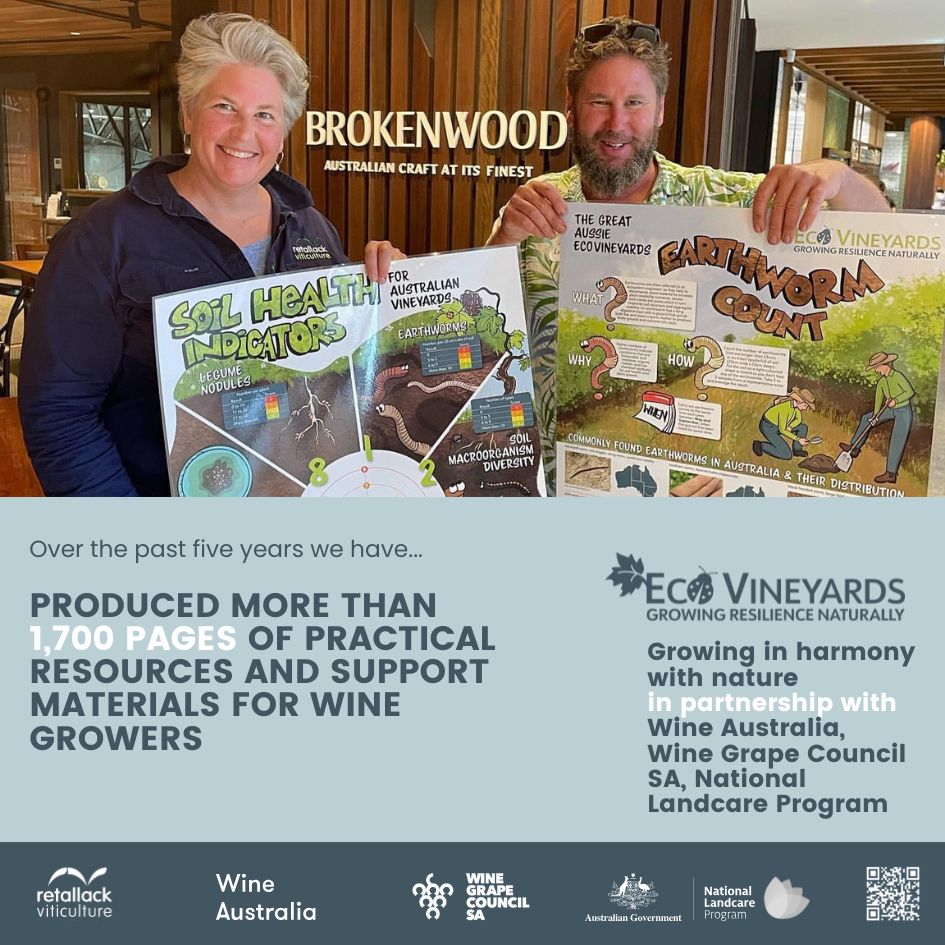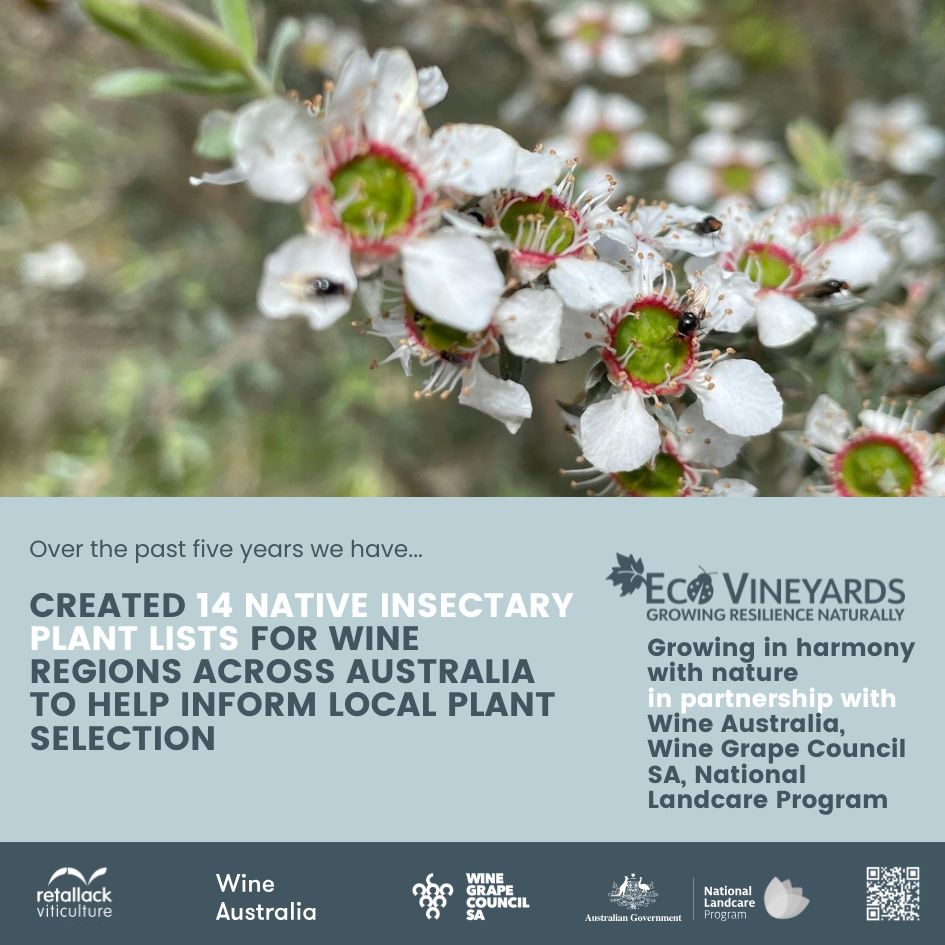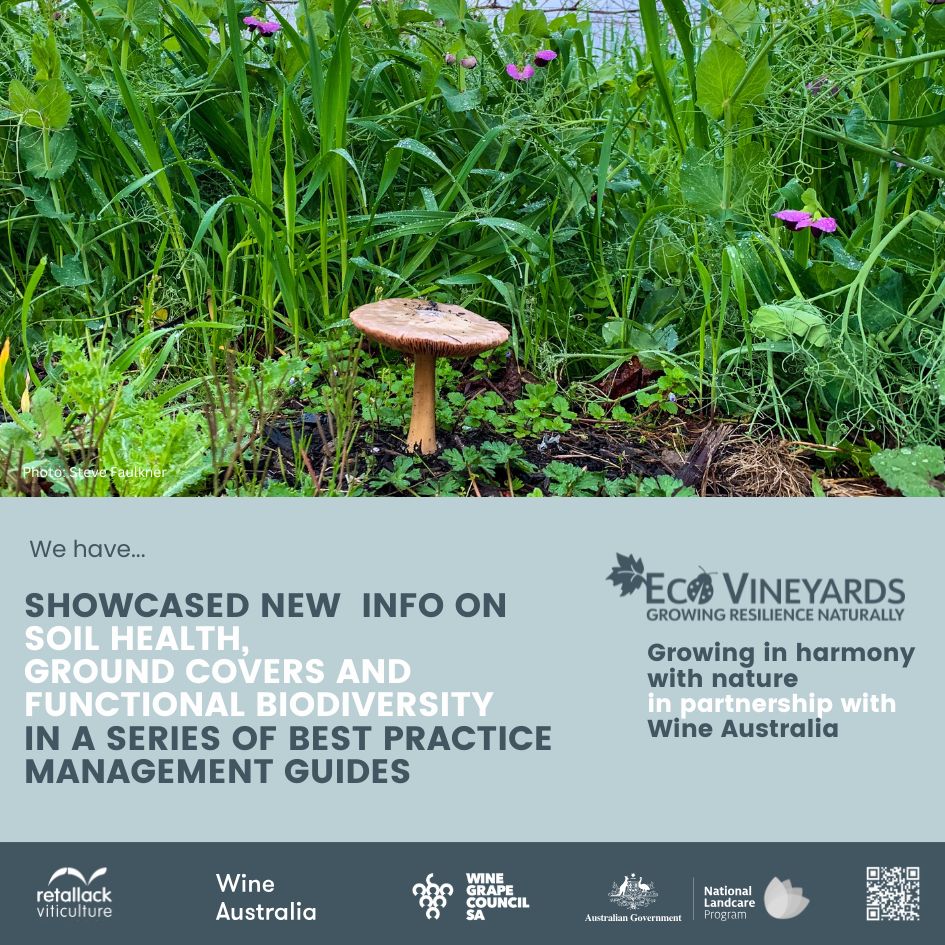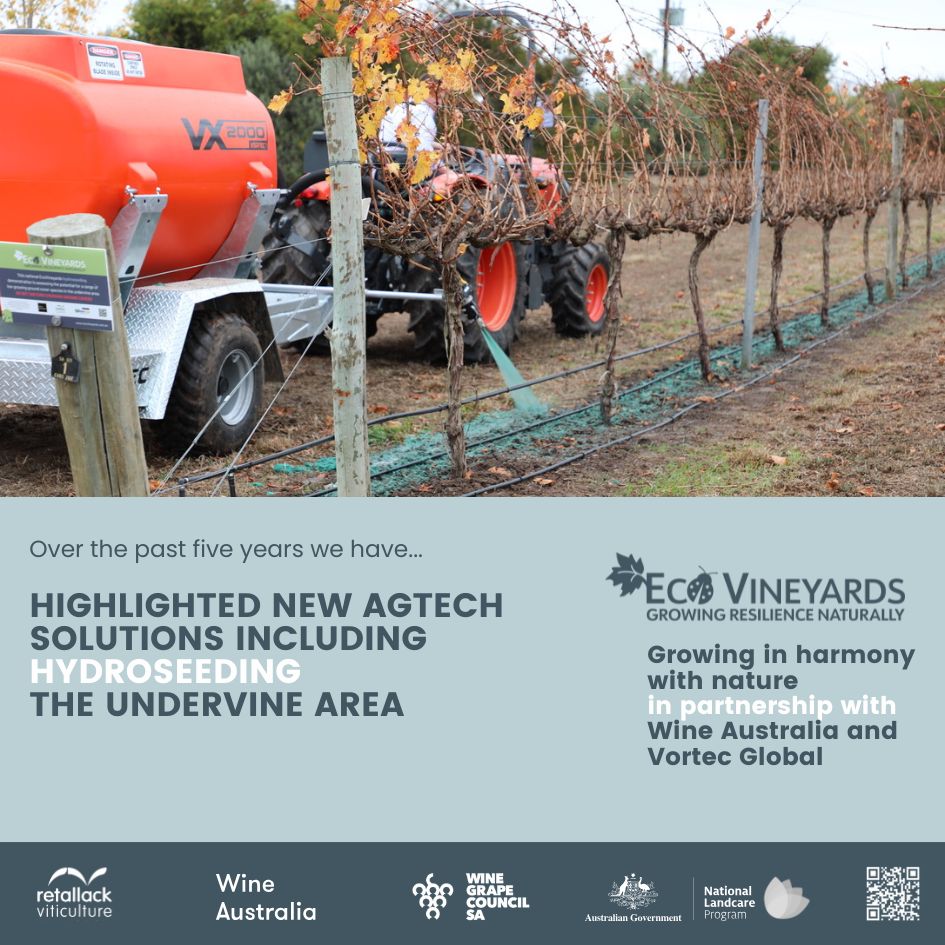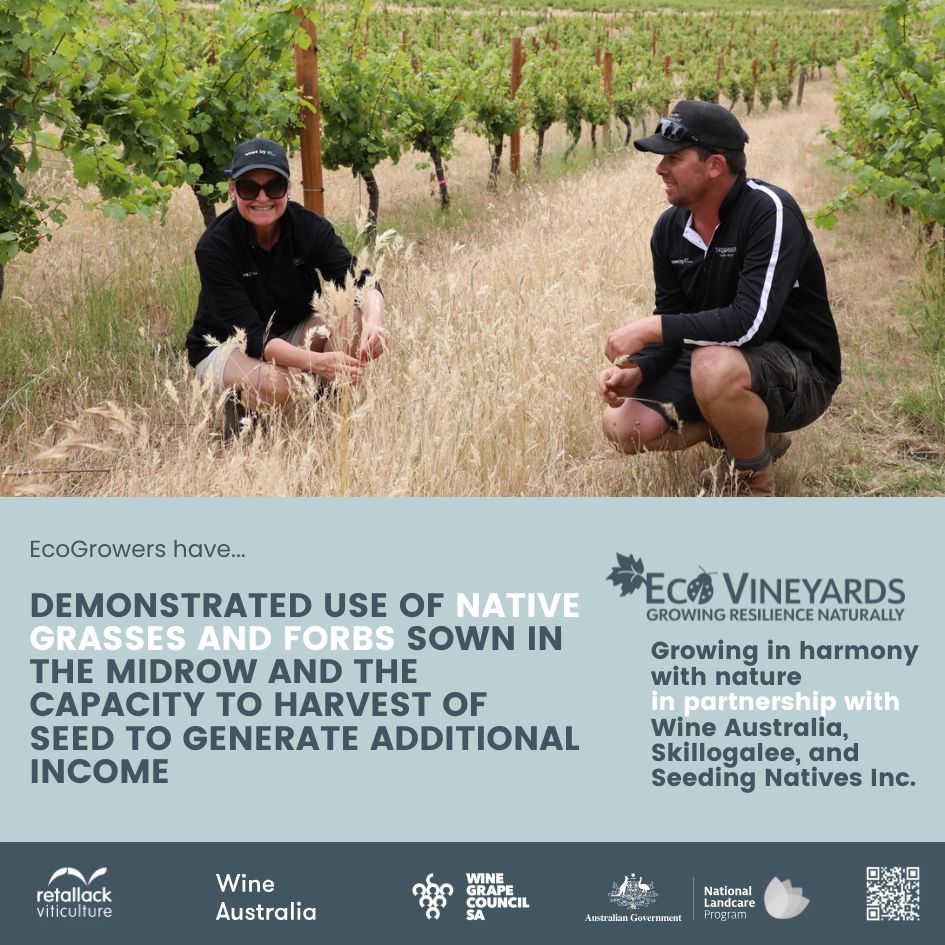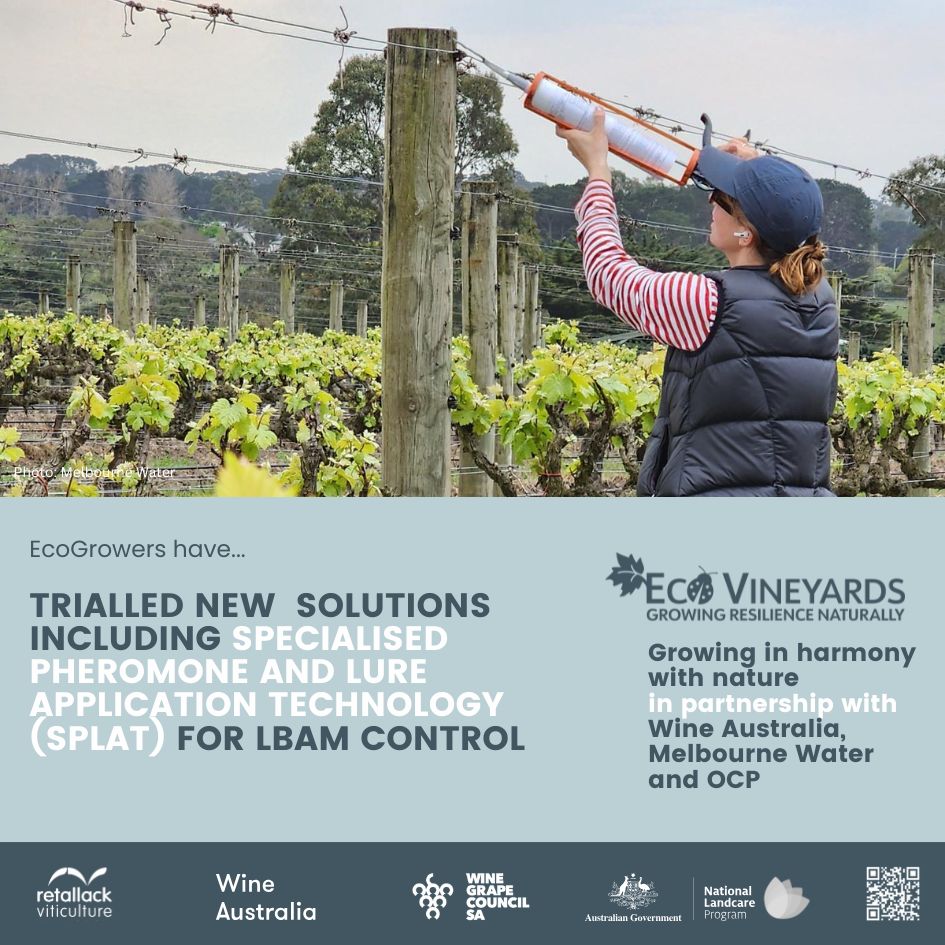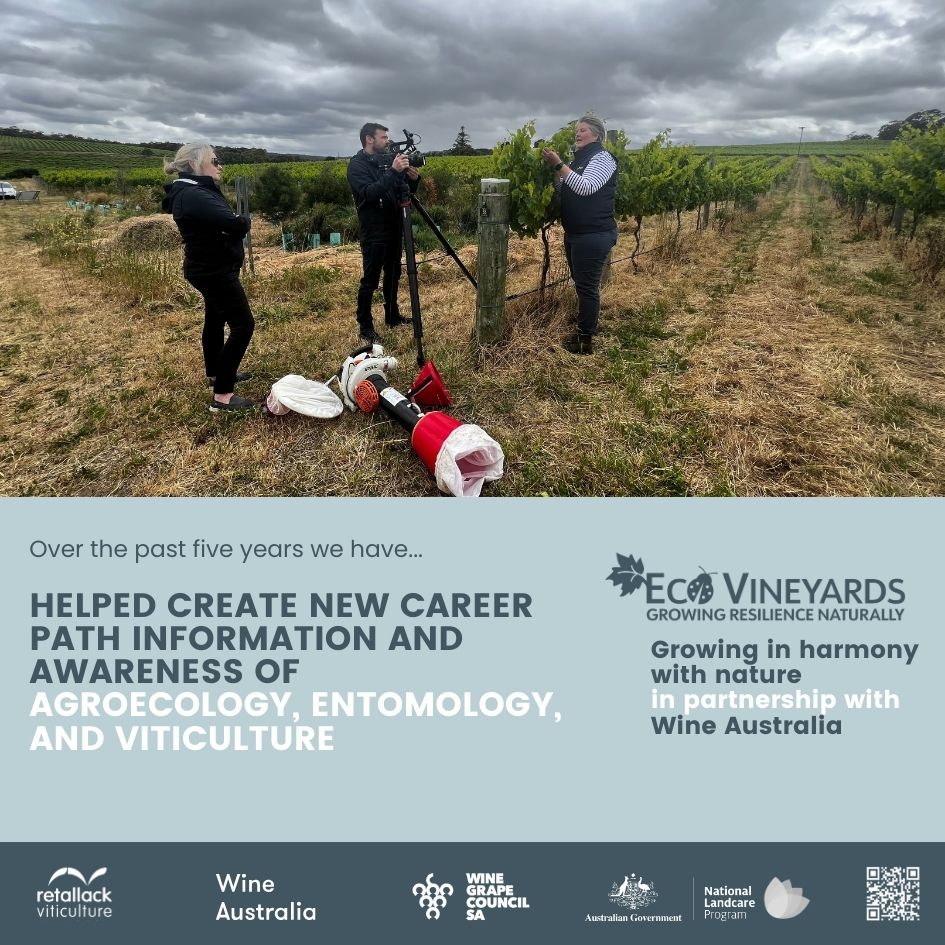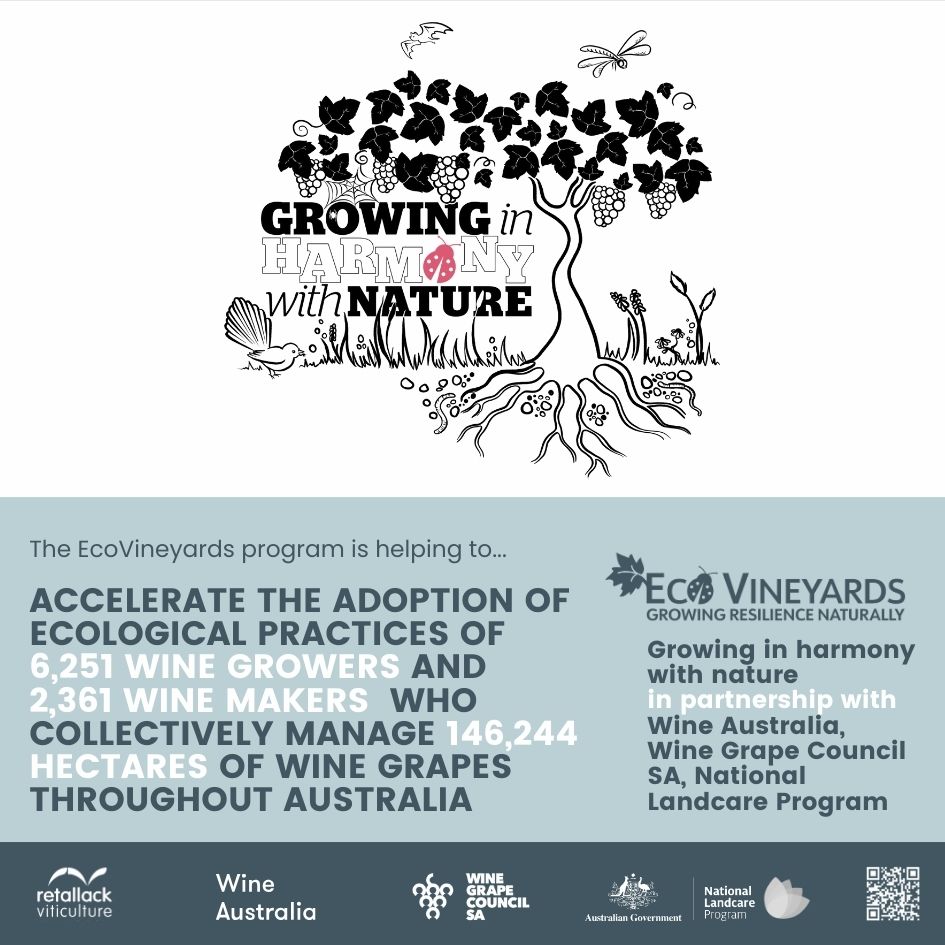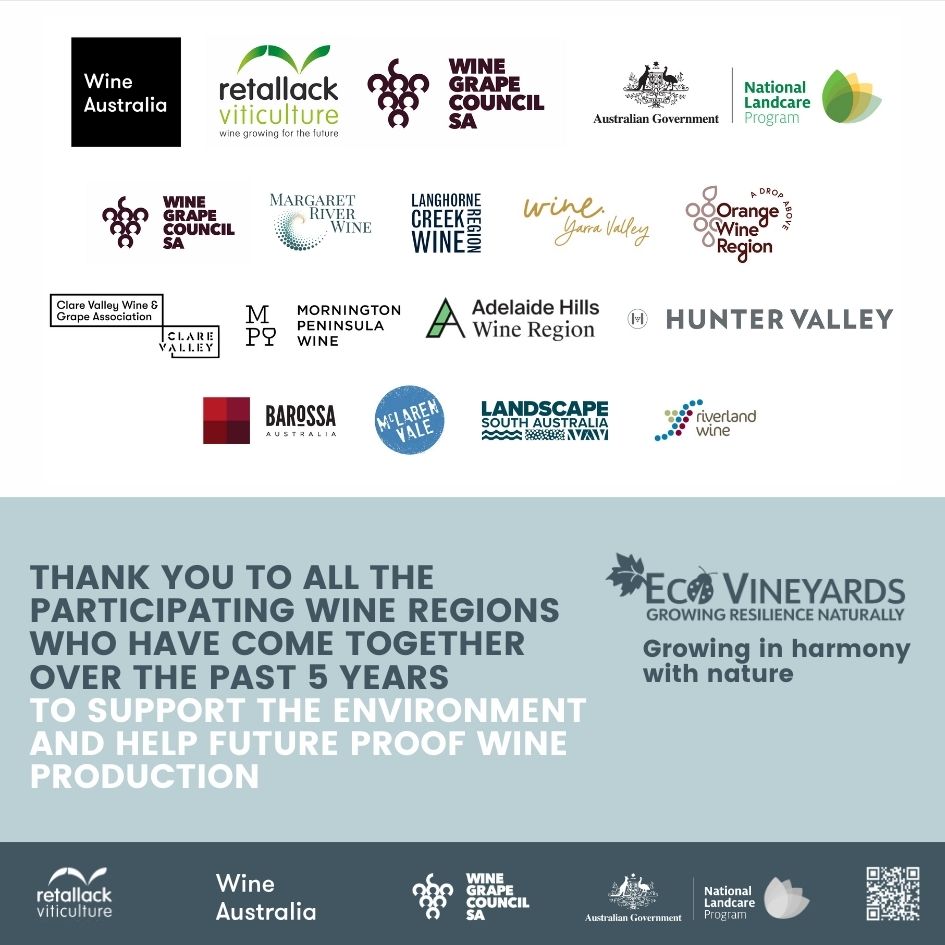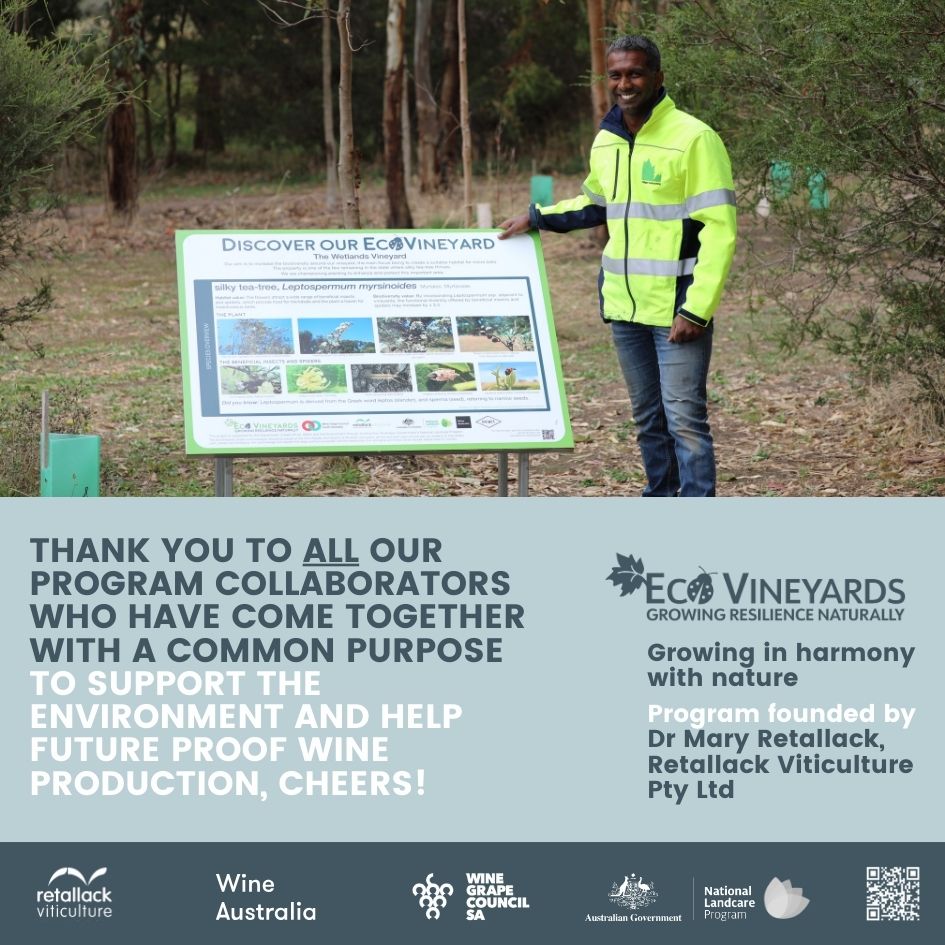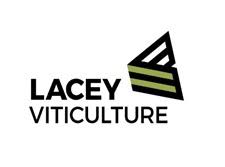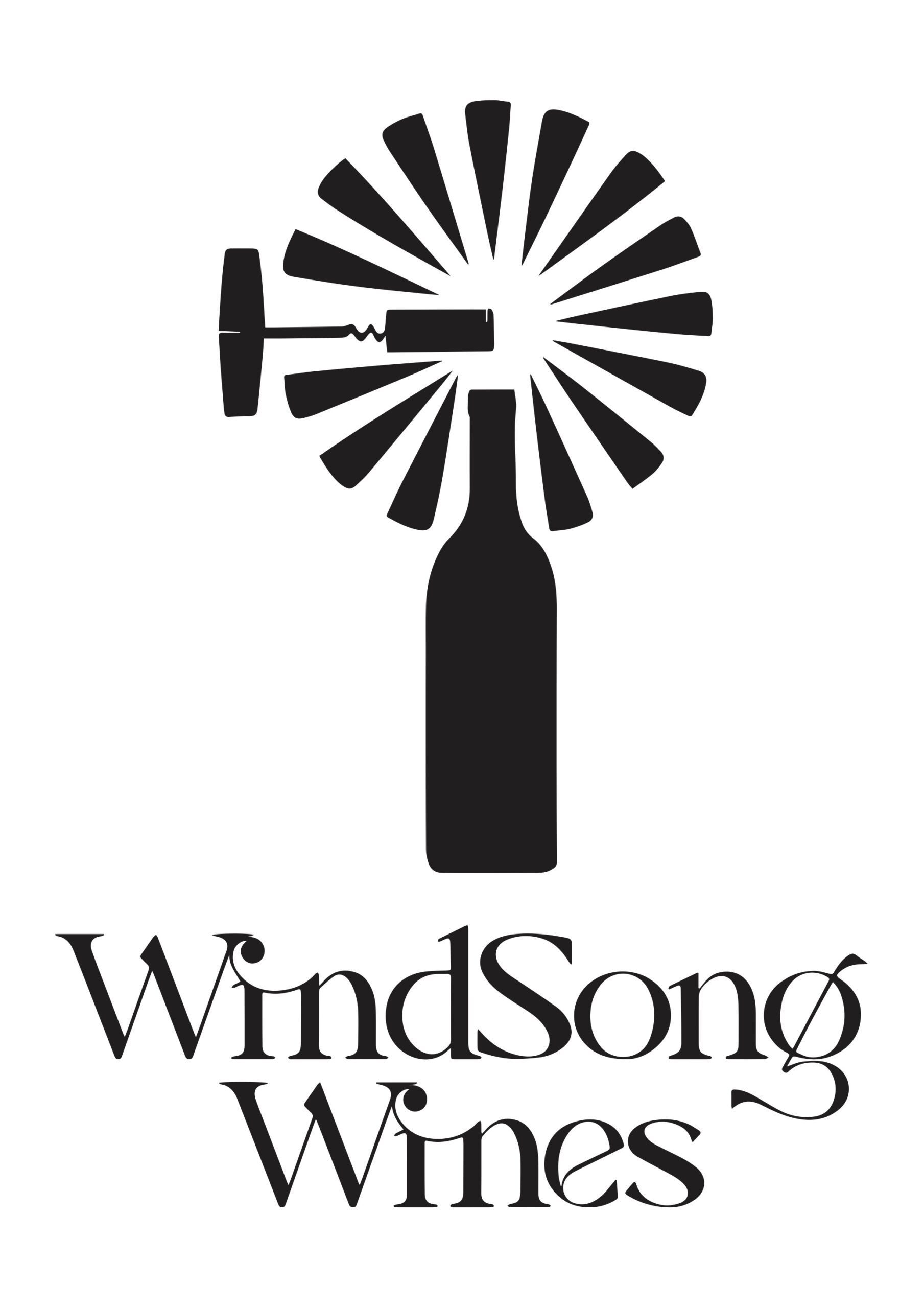Welcome to the National EcoVineyards program!
What is the National EcoVineyards program?
Winegrape growers throughout Australia are being supported in their actions to enhance soil health, establish ground covers and increase functional biodiversity in their vineyards through the national EcoVineyards program.
Through EcoVineyards, wine growers have access to new region-specific resources, regular events, and insights from demonstration sites in participating wine regions. Strong regional collaboration has been important to help future proof fruit quality, production, and the resilience of Australian vineyards.
The program is delivered by Retallack Viticulture and Ecology with significant support from regional communities.
The National EcoVineyards program was funded by Wine Australia with levies from Australia’s grape growers and winemakers and matching funds from the Australian Government. Following the national ‘open call’ in late 2022, a new intake of EcoGrowers was announced in each participating region in early 2023. You can read more about each EcoGrower here. They established a diverse range of demonstration sites to provide practical insights to questions in the field around the topics of soil health, ground covers and functional biodiversity. You can read more than 75 case studies here and 30 new case studies here
Join us on Facebook and Instagram to hear regular updates about the program and tag us to share your insights @EcoVineyards.
Best Practice Management Guides (BPMGs) are available for download and/or purchase
Our progress
175+
Partnering businesses
are working in collaboration with the common purpose of fostering environmental stewardship.
76
Demonstration sites
have been established across Australia featuring a range of ecological practices and tailored EcoVineyards signage.
240
Microbat boxes
have been installed across Australia (in collaboration with Seaford Rotary).
75
Predator perches
and 75 photo points have been designed, manufactured, and installed (in collaboration with Ocvitti Australia/Ocloc).
100+
Grower events
field days and networking events (twice per year over 5 years in 8 major wine regions).
1,500
Attendees
at grower events over the last 6 years.
128,602+
Native insectary plants
grasses, forbs, woody ground cover, shrubs and trees have been planted in the last 6 years.
68
EcoGrowers profiles
have been completed.
67
Case studies
have been completed.
17
Supporting information
17 articles that provide scientific research about native insectary plants and the arthropods found in association.
14
Native plant community lists
a summary for each participating region across Australia.
2,030+
Pages
of practical resources including a series of best practice management guides on soil health, ground covers and functional biodiversity and field guides on arthropods, birds and soil health indicators.
56
Fact sheets and videos
comprising 400 pages have been developed showcasing a broad range of topics, visit the knowledge hub to search by topic, resource type or region.
13
Signage templates
EcoVineyards signage templates x 3 large and x 10 small format for native insectary plants and the arthropods found in association have been produced.
875+
Facebook followers
Visit Facebook for all the latest EcoVineyards news and events notifications.
1,720+
Instagram followers
Visit Instagram for all the latest EcoVineyards news and events notifications.
Acknowledgments
The original EcoVineyards program was funded via the National Landcare Program Smart Farms Small Grants program with the Wine Grape Council of South Australia (WGCSA) and Retallack Viticulture Pty Ltd working in partnership in South Australia from May 2019.
The National EcoVineyards Program was funded by Wine Australia with levies from Australia’s grape growers and winemakers and matching funds from the Australian Government.
The program is delivered by Retallack Viticulture and Ecology with significant support from regional communities.
EcoVineyards proudly acknowledge the Aboriginal and Torres Strait Islander Peoples, and their ongoing cultural and spiritual connection to this ancient land on which we work and live. As the Traditional Custodians we recognise their wealth of ecological knowledge and the importance of caring for Country. We pay our respect to Elders past and present and extend this respect to all Aboriginal and Torres Strait Islander Peoples.
Enquiries
Please direct all enquiries to the National EcoVineyards Program team via [email protected]
Follow us on Facebook and Instagram to find out more @EcoVineyards


